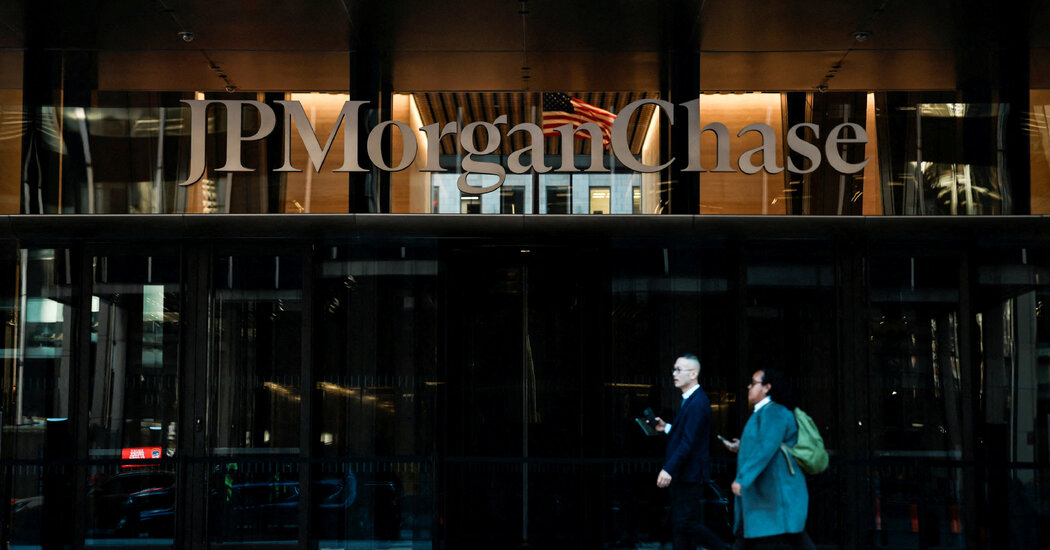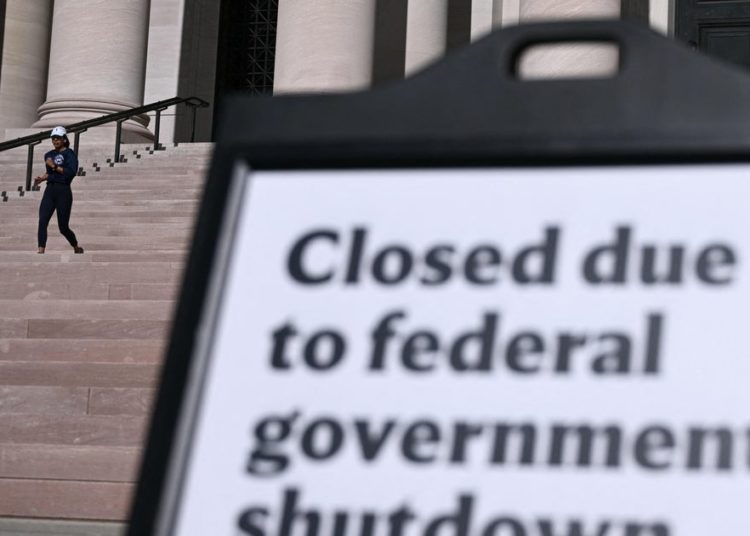Weeks after Jeffrey Epstein died in federal custody in 2019 awaiting prosecution on sex-trafficking charges, JPMorgan Chase filed a report alerting the U.S. government to tens of millions of dollars of potentially suspicious transactions involving him and prominent Wall Street and business figures.
The so-called suspicious activity report that JPMorgan filed identified transactions with Leon Black, the co-founder of private equity firm Apollo Global Management; Glenn Dubin, a well-known hedge fund manager; the lawyer Alan Dershowitz; and trusts controlled by Leslie Wexner, the retail tycoon.
The nature of the transactions, as well as Mr. Epstein’s role in them, is unclear.
JPMorgan said in its report that it was flagging about 4,700 transactions, totaling more than $1 billion, because they were potentially related to reports of human trafficking involving Mr. Epstein. It also mentioned Mr. Epstein’s wire transfers to Russian banks and sensitivities around “his relationships with two U.S. presidents.” Mr. Epstein at times was close with President Trump and former President Bill Clinton.
None of the men mentioned in the report have been charged with crimes in connection to Mr. Epstein.
The report was included in hundreds of pages of previously sealed court records that JPMorgan released on Thursday at the instruction of a federal judge, Jed S. Rakoff. He ordered the documents unsealed in response to requests from The New York Times and The Wall Street Journal.
Several other suspicious activity reports that JPMorgan filed in the years before Mr. Epstein’s 2019 arrest were also included in the documents released on Thursday. They notified federal regulators to some of Mr. Epstein’s voluminous cash withdrawals, which experts say are a potential hallmark of money laundering and human trafficking.
Yet JPMorgan continued to do business with Mr. Epstein for years. The bank lent him money, moved his funds overseas and enabled payments to some of his sex-trafficking victims, The Times reported in September. Bank employees repeatedly raised concerns about the risks of being associated with Mr. Epstein, but senior executives decided to keep his accounts open.
The 2019 suspicious activity report provided scant details about the transactions in question or why they were considered suspicious, aside from apparently being connected to Mr. Epstein.
In the case of Mr. Wexner’s trusts, it described $65 million of wire transfers from the mid-2000s that appeared to move between multiple banks. Mr. Epstein served as a trustee for some of Mr. Wexner’s trusts.
For nearly two decades, until around 2007, Mr. Epstein was a close financial adviser to Mr. Wexner, whose company controlled retailers like the Limited and Victoria’s Secret. Soon after Mr. Epstein’s death, Mr. Wexner accused him of having misappropriated “vast sums” of his money.
The suspicious activity report pointed to unidentified transactions with Mr. Black, his wife and a Black family partnership. The Times recently reported that Mr. Black had paid Mr. Epstein about $170 million and hundreds of thousands of dollars to at least three women who were associated with Mr. Epstein.
Mr. Epstein’s relationship with Mr. Dubin was multifaceted. Mr. Epstein helped broker the sale of Mr. Dubin’s hedge fund to JPMorgan, for which Mr. Epstein received a $15 million fee. Mr. Epstein previously dated Mr. Dubin’s wife, Eva Andersson-Dubin, and was the godfather to the Dubins’ children.
The suspicious activity report that JPMorgan disclosed on Thursday did not provide details about the transactions involving the Blacks, the Dubins or Mr. Dershowitz.
Devon Spurgeon, a spokeswoman for the Dubins, said the transactions in question were “related to charitable giving, personal gifts or business matters” and unrelated to Mr. Epstein’s crimes.
Mr. Dershowitz, who was one of Mr. Epstein’s criminal defense lawyers, said, “The only funds I ever received from Jeffrey Epstein were payments for my legal services based on my hourly rates.”
The 2019 suspicious activity report also flagged a number of people who worked closely with Mr. Epstein over the years and several of his corporate entities.
A JPMorgan spokeswoman, Patricia A. Wexler, said the documents showed that JPMorgan had repeatedly alerted regulators to red flags surrounding Mr. Epstein by filing suspicious activity reports.
“It does not appear that anyone in the government or law enforcement acted on those SARs for years,” she said.
In preparing the 2019 suspicious activity report, the bank pulled together every transaction that Mr. Epstein had any involvement with or that had gone through one of his accounts, Ms. Wexler said.
JPMorgan, the nation’s largest bank, served Mr. Epstein for more than a decade, a period during which he is believed to have sexually abused some 200 young women and girls, some as young as 14.
The role of JPMorgan in financing Mr. Epstein’s sex-trafficking operation has drawn new scrutiny after an article in The Times detailed how the bank had repeatedly disregarded red flags about his activities, including frequent large cash withdrawals and other suspicious transactions.
Some lawmakers in Congress have called for hearings into JPMorgan’s role, including demands that Jamie Dimon, the bank’s chief executive, answer written questions or testify before a Senate panel.
The financial records made public on Thursday were produced by JPMorgan during litigation in 2023 that was brought on behalf of victims of Mr. Epstein and by the U.S. Virgin Islands, where he maintained a private island residence that served as a base for most of his financial advisory businesses.
In 2023, JPMorgan agreed to pay $75 million to the Virgin Islands government to settle the litigation. The bank also paid $290 million to settle the victims’ lawsuit.
JPMorgan has said it regretted its involvement with Mr. Epstein but was not aware of his sexual abuse.
The unsealed documents include emails in which Mr. Epstein helped to recruit the founders of Google to be JPMorgan clients in the early 2000s. The Times previously reported that one of the founders, Sergey Brin, ultimately put more than $4 billion into a JPMorgan account. The emails also show a JPMorgan executive discussing the potential use of complex trusts to reduce the taxes of Mr. Brin and his co-founder, Larry Page.
A Google representative did not immediately respond to a request for comment on Thursday night.
The documents released on Thursday shed little new light on what Mr. Dimon knew about his bank’s relationship with Mr. Epstein. Mr. Dimon has said he was not aware of the bank’s extensive work for him until 2019, though at least one top executive has said under oath that he discussed the Epstein relationship with Mr. Dimon.
Mr. Dimon clearly knew by the summer of 2019. On the Saturday in August that Mr. Epstein was found dead in his Manhattan jail cell. a JPMorgan employee emailed colleagues with a link to a Times article about his death. That afternoon, an employee forwarded the message to Mr. Dimon.
Matthew Goldstein is a Times reporter who covers Wall Street and white-collar crime and housing issues.
David Enrich is a deputy investigations editor for The Times. He writes about law and business.
Jessica Silver-Greenberg is a Times investigative reporter writing about big business with a focus on health care. She has been a reporter for more than a decade.
Steve Eder has been an investigative reporter for The Times for more than a decade.
The post JPMorgan Alerted U.S. to Epstein Transfers Involving Wall St. Figures appeared first on New York Times.




